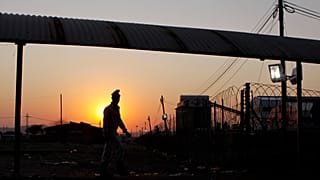Business Africa
Nigeria’s growth rates for the last ten years have not been anywhere near impressive.
After posting 6.31% in 2014, the country saw a downward spiral, barely registering any growth in 2020.
In 2022, the economy grew 3.1% prompting optimism that after Covid, a rebound is on the way.
But a botched introduction of new bank notes has needlessly hurt economic activity and crippled businesses.
Characterized by inflation, high unemployment, rising debt and falling oil production, Nigeria’s economy has featured prominently in the election campaign discourse.
Andrew Nevin is a partner and Chief Economist at PWC in Nigeria. He joins the show to discuss what Nigeria’s incoming administration needs to do to unlock growth.
South Africa: Appetite for strawberry growing ticks up
Strawberries traditionally grow in low temperature conditions. In recent years, scientists have bred new varieties that do well in hot and humid areas.
And farmers in South Africa are jumping at the opportunity.
DR Congo to grow 8% backed by mining
A commodity boom underway since 2022 is helping Kinshasa record strong GDP growth.
The country’s economy is projected by the International Monetary Fund (IMF) to expand 8% this year, after growing 8.5% in 2022, thanks to an increase in mining production.




![Africa forges a trade future beyond AGOA [Business Africa]](https://images.euronews.com/articles/stories/09/64/42/29/320x180_cmsv2_536479be-0c6e-53b6-861a-65ff2db0f40e-9644229.jpg)

![Sino-African Cooperation: A New Turning Point [Business Africa]](https://images.euronews.com/articles/stories/09/63/73/96/320x180_cmsv2_a963e3c3-011b-5838-91f8-3fbad8429872-9637396.jpg)






Go to video
Five diamond miners trapped by mudslide presumed dead, South African minister says
Go to video
38 killed in gas blast at Nigeria lead mine
01:01
Gold rush fever grips township outside South African city of Springs
01:06
China to scrap tariffs for most of Africa from 1 May, says Xi Jinping
02:13
Nigeria: Matchmaking websites increasingly popular in Kano
01:53
South Africa's political parties largely welcome troop deployment